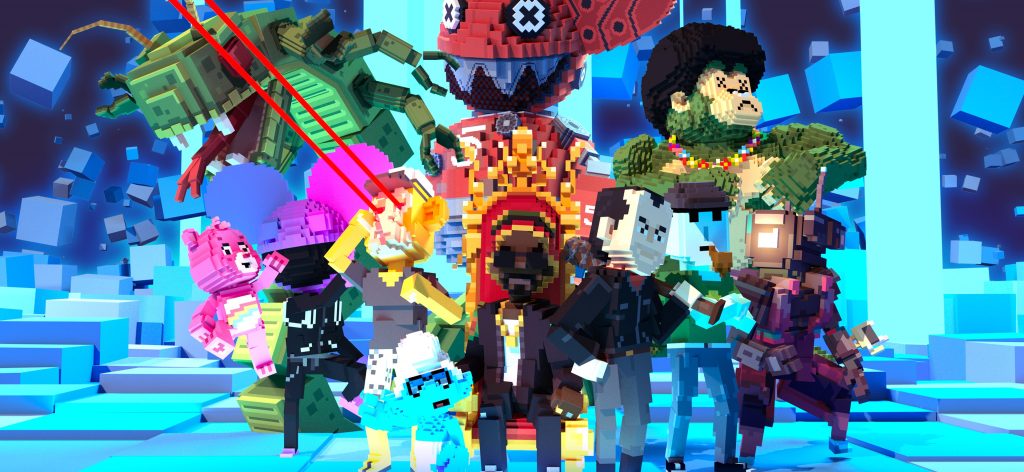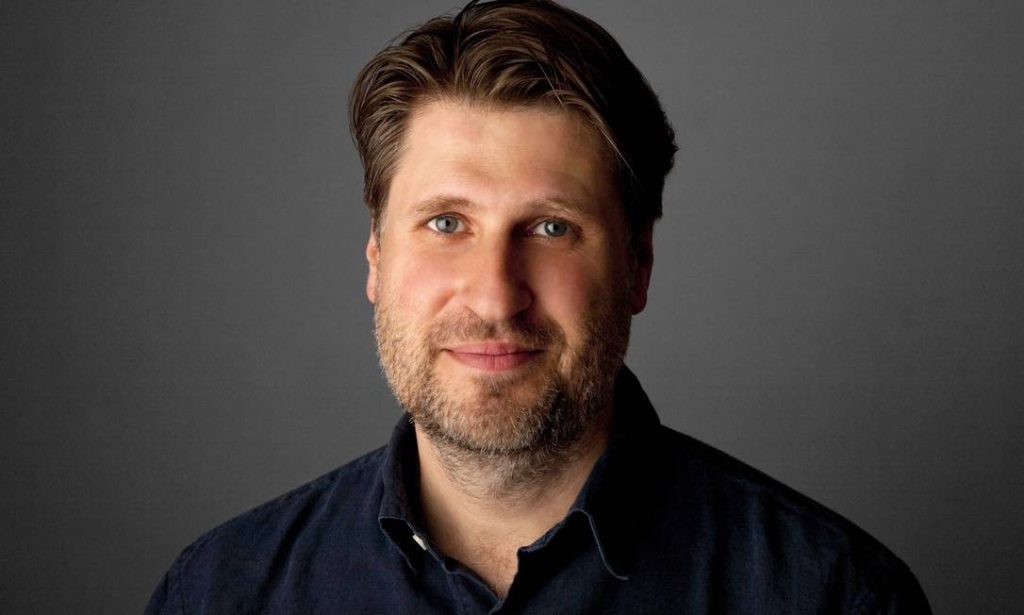
The Sandbox is a creative metaverse, in a similar vein to Roblox. Currently it’s being formed through a series of timed alpha programs in which creators can join, play, and create. Community members are kept involved via a running series of special events, often in tandem with third parties.
It’s a platform in which creators can make digital assets / NFTs and games that can be monetized via blockchain. It’s also a metaverse in which marketers and investors can buy virtual land and stage events. Brands that have chosen to pitch their tents include Square Enix, Atari, The Smurfs and Care Bears.
GameDaily spoke to The Sandbox’s U.S. CEO Mathieu Nouzareth about the lessons the company has learned so far.
GameDaily: What’s the single biggest lesson you’ve learned so far?
Nouzareth: Focusing on creators is number one. We’re building a platform. We’re making sure that we have the right amount of content, making sure that creators are happy with the platform and that it makes sense for them from a business perspective, from a tooling perspective, and from an experience perspective.
We’ve spent an enormous amount of time working with the creators’ community, making sure they understand what we’re doing, and getting feedback to improve our tools.
The reason that Web3 works well for creators is about digital ownership. They want more freedom than Web2 metaverse platforms, because we are, by design, decentralized. We are not the owner of the content they create. They are the owners. They own everything they do. What they want is freedom.
We only take a small commission [from digital sales within the platform]. We only take 5% commission on the transactions, so 95% goes back to the creators. This is really unprecedented. Most platforms take 30%, commission or even more. We decided to give the vast, vast majority of the proceeds to the creators.
GameDaily: You recently released a report on the place of avatars in the metaverse …
Nouzareth: People really love to customize avatars and to make it a big part of their community experience. As a result, for example, one of the verticals that works very well in the metaverse is fashion and luxury goods.
This may sound surprising, but when you think about it, in real life, people are ready to spend big bucks on fashion and luxury goods that signal something to their community; that signals their belonging to a certain tribe.
It’s exactly the same online. People are ready to spend time and money customizing avatars and focusing on the wearables, the sneakers, the t-shirts, the hats that they can buy for the avatar.
GameDaily: The Sandbox has said that it wants to disrupt existing game makers like Minecraft and Roblox? How realistic is that goal?
Nouzareth: We have tremendous respect for those Web2 metaverse companies. Undeniably they’ve created a very big business success with tens of millions of active users per day.
But we’re taking a different approach. The value proposition for creators and for users is very different. As I was mentioning before, creators can make money and own their own work.
Ownership of digital property is also very important, which is something they don’t do in Web2.
Also, interoperability. It’s not there yet, because of technical challenges, but it’s something that we’re working very hard on, because it’s going to mark a fundamental difference between Web2 and Web3. It’s more interesting for everyone to cooperate and to be interoperable because it creates more value. It creates more freedom and more opportunities to express themselves and to play interesting games and to move between metaverses.

GameDaily: Do you have many use cases yet of creators who are actually making money from The Sandbox?
Nouzareth: Definitely, although we are not yet fully launched. We are still in alpha mode meaning that we operate in seasons. We open for a few weeks, we learn what works, what doesn’t work, and then we close the metaverse, and we open a few months later for another season.
In the last season, for example, we had what we call 100 experiences. An experience can be a game or a concert, or a social experience. It can be lots of different things. We can’t disclose revenues but I can tell you that a lot of those 100 experiences directly generated revenues for the creators by selling wearables or [entry] tickets for example. There are several ways creators can monetize inside The Sandbox.
We see a lot of interest in experiences from well known brands like Gucci and Warner Music. But a lot of smaller communities are able to engage the community, and it’s not just about games, but about other verticals like movies, TV, music, fashion, NFTs and other things that the community finds interesting as social opportunities.
GameDaily: Tell me about getting the economy right – integrating cryptocurrency into your community.
Nouzareth: There’s no silver bullet. There’s no recipe that everyone can copy and apply. It’s a lot of trial and error and observing what’s happening so we can keep improving. It’s about fine tuning towards a successful modality.
You’re making a lot of trade-offs – saying, for example, let’s focus more on driving user behavior towards engagement, or let’s put some more tokens out there. You’re always looking to find a balance between driving virality or retention or monetization.
Imagine it as a very big, complex spreadsheet with lots of parameters, lots of levers, which we are constantly tweaking. But many of us here have worked in mobile games and so we’re experienced in trial and error, even though this is more complex.
GameDaily: We’ve seen a downturn in media positivity about the metaverse. How is that affecting you and your business?
Nouzareth: There’s no denying that [metaverse] coverage is not as favorable as in the past. There is a crypto bear market in general which affects everyone. But we’re not a financial product, like an exchange, where the impact is much stronger.
Then you have some of the coverage of Facebook [Horizon Worlds] that has impacted the perception that people might have about the metaverse. But our vision for the metaverse is so different from Facebook’s. Where they see everything siloed and taking large commissions, we see something very different. We see multiple winners, and not this dystopian nightmare of a single dominant player.
We haven’t seen an impact from the players because they’re not here to invest. They’re not traders. They’re really here to have fun. We haven’t seen a slowdown or anyone stopping work on a project.
GameDaily: How successful have you been in selling virtual real estate?
Nouzareth: We started about 18 months ago and we’ve seen sustained success. People understand the scarcity of our mode. We have 166,000 plots of land, which are 2.5 acres each, so altogether, The Sandbox is roughly the size of London.
We still continue to sell a lot. It’s been impacted a little bit [by crypto instability] so the price went down in terms of U.S. dollars but on the whole it’s been really good for us. We’ve sold about two-thirds of the land available, and we’re being very conservative about how much we make available. We’ll sell 100 percent [of the land] by 2025 or 2026.
GameDaily: And then you’ll make all your real estate revenues from commissions from sales between owners.
Nouzareth: Exactly. That’s the ultimate goal. Land has no value whatsoever if you don’t have economic activity built on top of it. Every city needs a critical mass of businesses, and artists and people and companies. Our focus is not on land itself, but on the economic, social and creative activity that creates value.
GameDaily: Finally, what’s your focus for the next season when you open up?
Nouzareth: We haven’t announced a date yet, but I can tell you that we’re working on a lot of fronts. Better framerate. Better first time user experience. Smoother onboarding. More multiplayer capabilities. More content from big partners. I think you’re going to see a big step forward.
Colin Campbell has been reporting on the gaming industry for more than three decades, including for Polygon, IGN, The Guardian, Next Generation, and The Economist.
 GameDaily.biz © 2025 | All Rights Reserved.
GameDaily.biz © 2025 | All Rights Reserved.